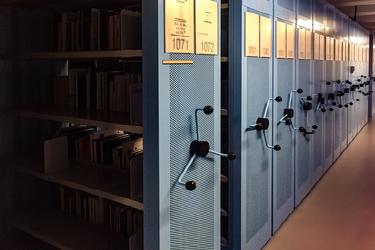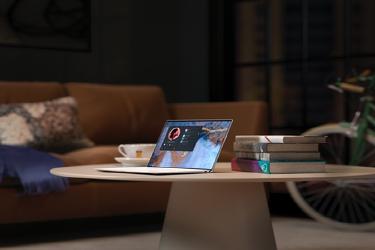
The battle is raging out between social media companies, giant technology companies, and others, the price? Your attention. Attention is the next goldmine for any company that wants to grow its user base. At the same time, to reach this goal, the web became fractured with apps, where everyone has their own. Where once you had one or two apps each for social media, following the news, productivity, and note-taking, you may now have several for each area. Those apps are great for the companies, as they all get part of your attention, but it isn’t very good for your attention. That is where centralized hubs come in the picture.
What are we up against?
Attention is currently the most precious thing that marketers and advertisers are trying to get from you. Why is that? With attention comes trust, clicks, and staying top of mind, all great things when you’re trying to sell products. Most forms of notifications are also about uncertainty. When will someone answer? Do I have a new email? Is there something vital for me to look at? That uncertainty is one of the main things that get you hooked on applications. Even if we shouldn’t or wouldn’t otherwise get caught in they are pretty powerful triggers, as explained by Nir Eyal in his book “Hooked: How to Build Habit-Forming Products”:
Uncertainty is at the core of what makes us come back and gets hooked; the variability of reward and uncertainty of the next thing coming up are big triggers.
There’s also the myth of multitasking; we cannot multitask across multiple applications or focus. This fact has been proved and talked about many times, but I like how Sönke Ahrens put it in his book “How to take Smart notes”:
Multitasking is not what we think it is. It is not focusing attention on more than one thing at a time. Nobody can do that. When we believe we multitask, what we do is shift our attention quickly between two (or more) things. And every shift is a drain on our ability to shift and delays the moment we manage to get focused again.
Now that we have a better idea of the thing to fight against, mainly uncertainty and focus shift, how do you fix that without extreme measures? I’m not advocating cutting off all your applications, what I’m suggesting is taking back control, with central hubs.
Central Hubs
What is a central hub? It’s as simple as the name implies, a central place for gathering related information together where you can deal with it on your terms and your schedule. Here are four areas with different qualities that call for various forms of central hub:
- News/Reading: online article, emails newsletter, news source are your least time-sensitive information, making it easier to funnel them into a hub for which the traditional RSS or something like it will do.
- Social Media/Chats: social media, chat application, forums all require much more frequent catching up and are very diverse in forms, making them particularly challenging. Meaningful conversations are happening, and you want it all captured, so you don’t get FOMO (Fear of Missing Out).
- Productivity Systems: calendars, task lists, long-term planning, and projects all naturally fit together since they’re tied together very often.
- Notes Taking: all your notes should be in one central place, no matter what that place is (online, offline, folder, etc.)
News/Reading
This one is surprisingly easy to do. Pocket and Instapaper are the main “read later” applications, and both do a pretty good job. You install them and funnel all the things you want to read into them. In my case, though, I went with RSS (Feedly) because I could seamlessly integrate my emails newsletter and my news source into the mix.
RSS is one of those almost forgotten technologies but still powerful. It solves all the feeds problem, the “catching up” challenge, and the weird algorithms which are trying to tell what we want to see. On top of that, in the case of Feedly and Feedbin, you can integrate the Twitter feeds of specific people right into the RSS, so it even handles one major social media.
The primary goal is to be able to see something exciting which may occur at any time and put it aside for later, to keep focus. Read later apps, like Pocket and Instapaper, create a buffer that will increase the quality of what you read. That’s one of the things I touched in High-quality source for high-quality thoughts. You can also then batch the reading whenever you want. There’s no more fear of forgetting or “missing out,” it’s all in there waiting for you. Once a day, when you have 5m or whenever you feel like, open up the application and read away, no pressure.
Social Media/Chats
This one can be a little tricky as social media, which make their money from ads, have the highest incentive to keep you “hooked.” One good solution I found is called Station. It’s a “hub” with special handling for each of some hundreds of applications, and you can add your own in it. Then you have the Station application instead of tabs in your browser or separate desktop application. Central hubs like this are good to save some resources and browser tabs; they also often offer separation for work accounts vs. personal accounts. The big twist here is that Station funnels all your notifications from all those applications into a nice feed.
Now, all my chats, forums, and pings are all in this one application where I can see a single feed of all of them and decide if one needs an answer right away or it’s just not relevant—no more getting pings in real-time that turn out to be nothing. Station is not the only application that can do this; there are others like Franz, Rambox, Wavebox, but no matter which one you chose, the critical part is that they centralize your notification into a feed. That feed is the best way to fight FOMO since you can quickly see and “catch up” but on your term, and it is perfect for times when you don’t want to be disturbed.
Productivity Systems
Our productivity systems tend to be collections of todo lists, long term planning apps, notes, a calendar, and more. To get everything in one unified system, I moved to ClickUp, as I explained in What you need might be a project manager app, even if you’re solo, now all my productivity-related elements are in ClickUp. There is no need to keep 3-4 applications in sync. If it’s productivity/project/todo related, it goes into ClickUp.
Notes Taking
As with productivity, this will vastly depend on your personal note-taking style. Just as with productivity, I’d argue a single place for all your notes makes it easiest to accumulate, search for, and use them. Those three elements are essential for a Personal Knowledge Management system, or if you’re doing “literate doing,” as I explained in Literate Doing, Write everything you do. My solution to that problem is Obsidian. It’s a great note-taking experience, it’s built for knowledge management, and it’s all local under your control with notes being files on your disk.
Obsidian itself will display markdown files, but not other files. You can then merge project files and notes in the same folder, but the application won’t show them unless they’re markdown notes, so it doesn’t clutter the in-app file explorer. Then you can still use your OS file explorer to access them as needed. There’s a lot more to this application than this simple quirk/feature, but it’s a powerful thing in the case of hubs. With this, you can “filter” files and notes while keeping them together in the same folders.
Do not disturb
Now that you have hubs for all your reading, notifications (social media), productivity, and notes, what can you do with it? One of the great things with centralized feeds is the ability to turn them off and on. If you need to focus on writing an article about hubs and centralization, turn on the social hub “Do Not Disturb” mode on and write away. Won’t you miss all the chats and notifications? Yes, which is the point. So I won’t see notifications in real-time, and I will miss real-time conversations, but since everything is saved in feeds, it’ll be super easy to catch up afterward. Most of the day, the notifications will be on for me to see, but I can tune all that out whenever I need to be focused.
That is very freeing; I know things will pile up and wait for me to interact with them; instead of pinging my attention. Hubs work for you, not against you. They collect the needed information and wait for you to do something with it. No more FOMO or distraction when you need to focus on meaningful projects; turn it off and work away in peace. The rest of the world can wait until you’re ready to come back


